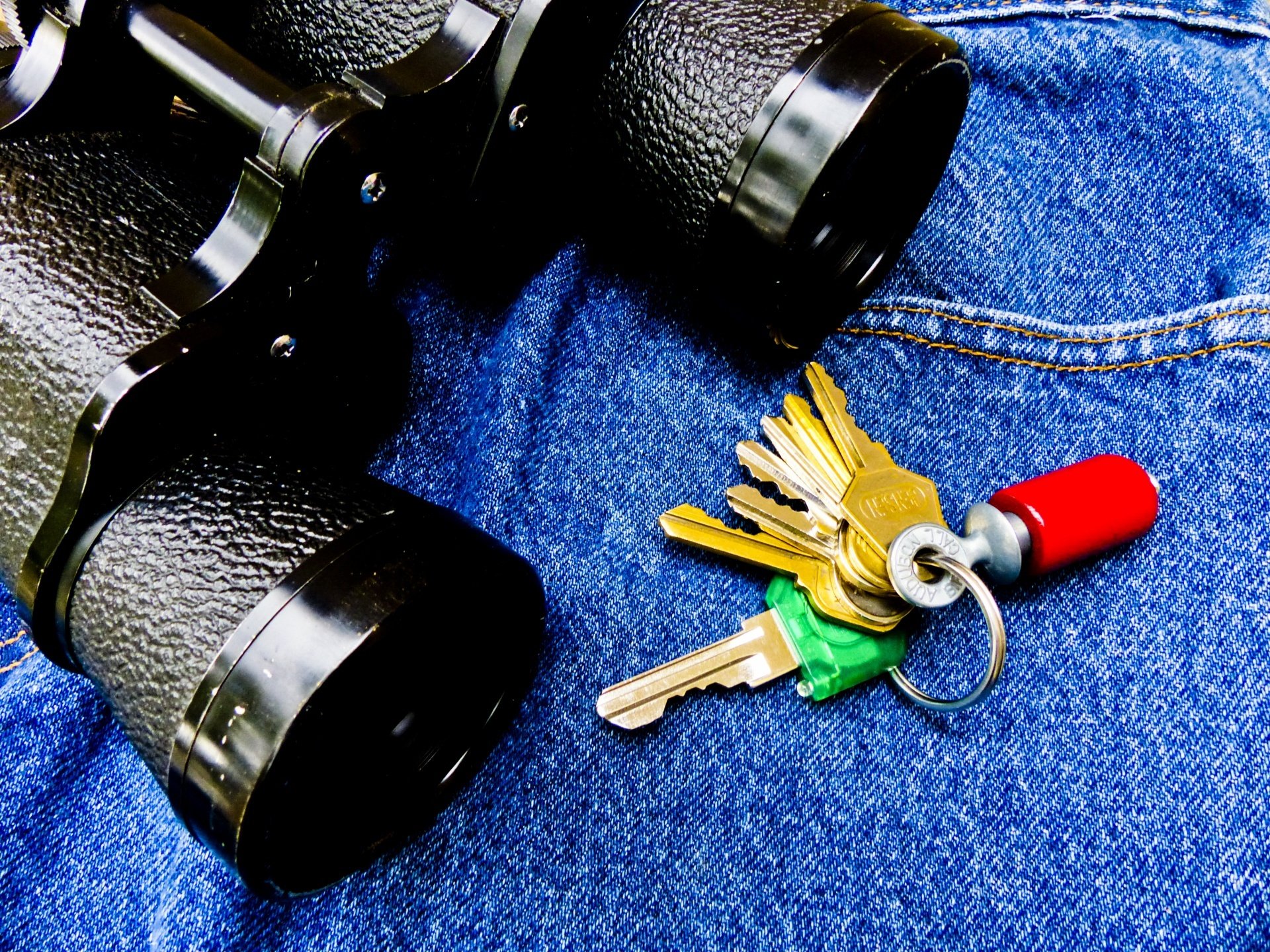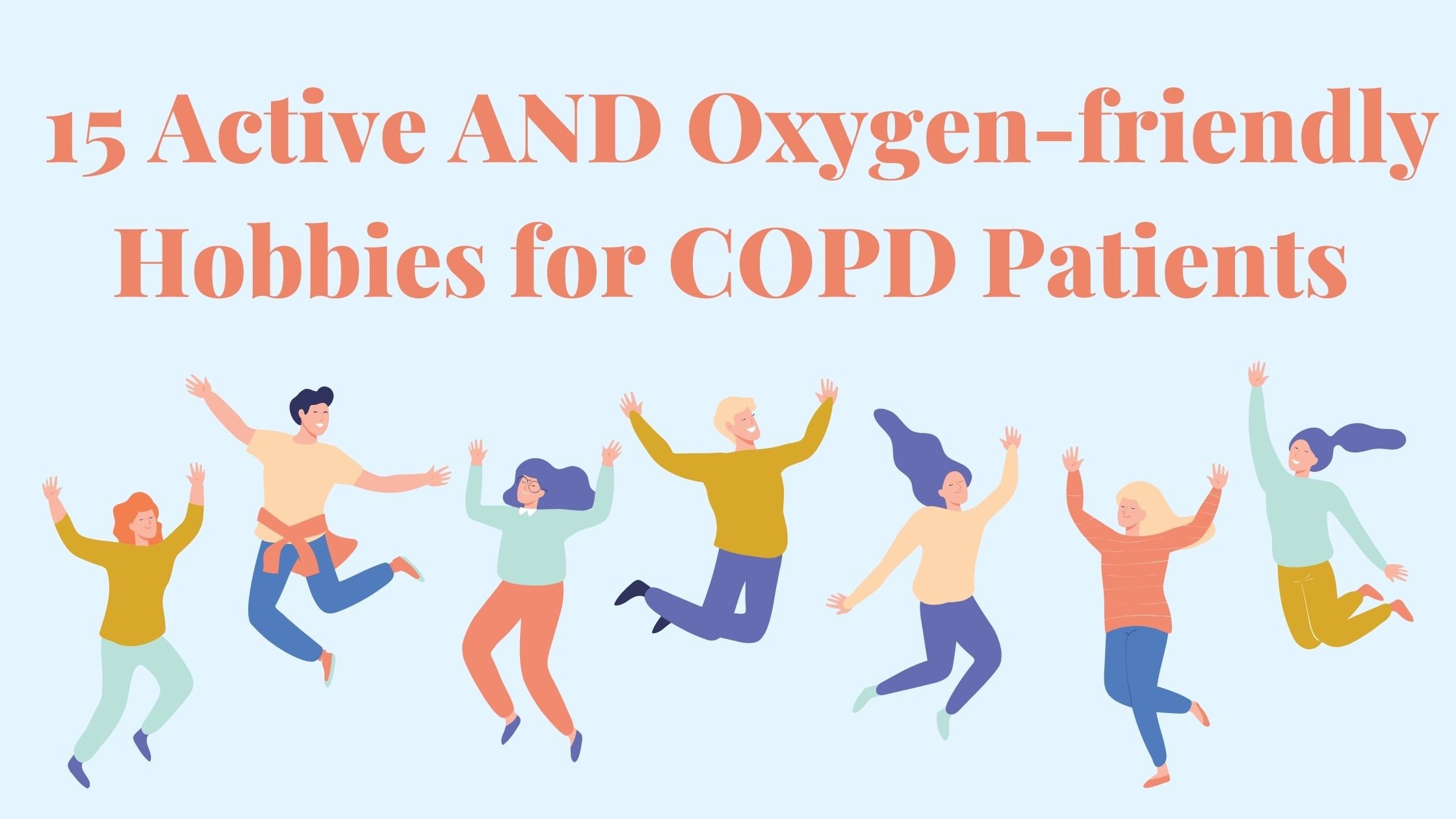
Everyone needs a hobby, and that's especially true for people with chronic diseases like COPD. Living with COPD can be stressful and difficult, and it's important to find activities you enjoy to brighten up your days.
Even though the symptoms of COPD can make some activities difficult, there are countless hobbies and activities you can still enjoy. Even if you suffer from severe shortness of breath, you can still find many fun ways to keep your body and mind active.
{{cta('fa8abc2a-1e88-4fa3-82fd-1cb5b9ed43b2','justifycenter')}}
The best kinds of hobbies are those that stimulate your brain or get your body moving. It's also helpful to have a quiet, relaxing hobby for times when you need to unwind and de-stress.
In this article, we're going to look at a variety of different hobbies that are both COPD-friendly and good for your health. We'll give you ideas for activities to get you outdoors, to get you more active, and to help you cope with the anxiety and other emotional aspects of living with COPD.
Too many people with COPD get discouraged because of their disease and give up on many of the hobbies and activities they used to enjoy. We want to prove to you in this post that you can still enjoy a wide variety of fulfilling activities even with the limitations of COPD.
How Healthy Hobbies Can Improve COPD
Finding hobbies you enjoy is certainly a matter of fun, but it is also a matter of physical and mental health. Having regular hobbies can be a great way to improve your body's strength, your mental well-being, and even your COPD.
First, hobbies can help you take your mind off your disease and focus on the things in life that matter. It's important to not let COPD grind your life to a halt, and to continue enjoying the activities in life that make you happy.
Second, hobbies can help you get out of the house and have new experiences. They can help you meet new people and visit new places that you would never have experienced before.
Many COPD patients experience feelings of depression and isolation and avoid going out or seeing other people. But having a hobby away from home gives you something to look forward to and can help you find the motivation to leave your comfort zone and socialize.
Hobbies can also help you get more exercise and stay active, which is vital for staying healthy with COPD. Even if you dread physical activity because of your COPD symptoms, having a regular, active hobby can help you stick to your exercise goals and even make it fun.
Finally, hobby activities give you an opportunity to learn new things, practice new skills, and keep your mental faculties sharp. Hobbies can stimulate your brain and body by giving you new experiences and something positive to focus your mental energy on.
.jpg)
Picking up a new hobby isn't always easy, and it can take awhile to build the habits and skills that will help you see it through. That's why it's so important to find an activity that you actually enjoy and look forward to doing on a regular basis.
Here is a list of some of potential benefits that hobbies can have for people with COPD:
- Reduced anxiety and depression
- Decreased boredom
- Opportunities to get out of the house
- Opportunities to spend time outdoors and in nature
- Make physical activities and exercise fun
- Add enjoyment and interest to your days
- Opportunities for social interaction
- Opportunities to meet new people and have new experiences
- Provide a break from the stress and bustle of work and other responsibilities
- Personal discovery and improvement
- Help you cope with stress
- Help you structure your time
- Increased motivation
- Increased satisfaction with life
- Improved self-esteem
- Improved physical fitness and endurance
- Reduced feelings of isolation and loneliness
- Opportunities to build your knowledge and skills
- Opportunities for creativity and exploration
Is it Safe to Have Active Hobbies with COPD?
It's important to realize that exercising and participating in hobbies is not only possible, but very healthy, even if you suffer from severe COPD. You shouldn't let breathlessness and other COPD symptoms stop you from doing the things that keep you healthy and happy.
While you may have some difficulties because of your disease, it is still perfectly healthy to exercise, go out, and enjoy life. While it's important to know your limitations, don't let your disease hold you back from living an active and fulfilling life.
If you are worried about how a new hobby or activity may affect your disease, don't hesitate to talk to your doctor. You doctor can tell you what kinds of activities are safe and even give you tips for managing your symptoms in different situations.
When you do anything active, always listen to your body and take as many breaks and rests as you need to keep your breathing under control. Take the time to stretch and warm up before doing something physical and keep your rescue medicine with you at all times.
If you do a hobby outdoors, it's important to be cautious about where and when you go outside. On certain days and in certain places, the outdoor air may be full of respiratory irritants that can make your COPD worse.
Things like smog, pollen, dust, and even extreme temperatures and humidity can make it harder to breathe and even trigger a COPD exacerbation. You are also more likely to get exposed to dust and smog near construction sites, busy roadways, and dense urban areas.
To make sure the air outside is safe for your lungs, take the time to check your local air pollution, weather, and allergy forecasts before planning activities outdoors. When the air quality is poor or the weather conditions are extreme, keep your lungs healthy by staying indoors and waiting until conditions improve.
If you are experiencing or getting over a COPD exacerbation, you may need to put off physical or outdoor activities until you recover completely. If you follow your COPD action plan and take it easy when you're symptoms flare-up, then you'll sooner get better and be able to return to your normal routine.
Overall, most hobbies are safe to do as long as you take basic precautions and don't push your body too hard. There's no reason to let your COPD limit your life any more than necessary, and there's every reason to enjoy life to the fullest.
The Best Hobbies for COPD
Because of your disease, you may have limited mobility or struggle to do physical activities for long periods of time. That's why, in this article, we've tried our best to only include activities that are light and easy for people with limited strength and endurance to do.
At the same time, we've tried to choose a variety of different hobbies to suit a variety of different tastes and activity levels. However, we've still stuck with hobbies that are oxygen-friendly and less likely to make you feel short of breath.
In the next sections, we'll explore a diverse set of healthy, COPD-friendly activities to help you find a hobby that works for you. We've even included a variety of tips and tricks for getting started and for making tasks easier when you struggle with breathlessness and fatigue.
If you are looking for ways to improve your life with COPD, take some time to look through and learn more about the hobbies listed below. It can be encouraging to see the wide variety of options you have and to know how they can improve your life.
For the sake of this article, we're going to split hobbies into three main groups: outdoor hobbies, indoor hobbies, and hobbies that relax or stimulate your brain. While this is not an exhaustive list, it may give you the inspiration and motivation you need to find another fulfilling hobby that works for you.
Outdoor Hobby Activities for COPD
There's something that's deeply refreshing about getting fresh air and spending time outdoors. In fact, studies show that being outdoors can reduce anxiety, boost creativity, and even improve your concentration.
However, some people with COPD find it difficult to motivate themselves to go outside. Because of COPD symptoms, depression, or simply the stresses of everyday life, many COPD patients end up avoiding activities that take effort or require leaving their homes.
However, getting outdoors is important for both your physical and mental health. It's gives you the opportunity to be more active, experience the tranquility of nature, and take a break from the confines of daily life.
Sunlight is also the best source of vitamin D, which is an important nutrient for your bones and for your mental well-being. And, because people with COPD are disproportionately affected by bone problems like osteoporosis, it's especially important to get enough vitamin D to keep your bones healthy and strong.
That's why it's so beneficial to have a hobby that gets you out of your house and into the sun. Even if you tend to avoid the outdoors, you'll feel much more motivated to get out when you have a fun activity to look forward to and a reason to go outside.
Many outdoor hobbies are also sources of exercise that can help you keep your body strong and toned. If you're looking to increase your physical activity, there are a variety of fun hobbies that will help you get light to moderate levels of exercise outdoors.
As the writer and conservationist John Burroughs wrote, "I go to nature to be soothed and healed, and to have my senses put in order." No matter how you do it, spending time outside and in nature will help you live a more full and meaningful life with COPD.
Walking
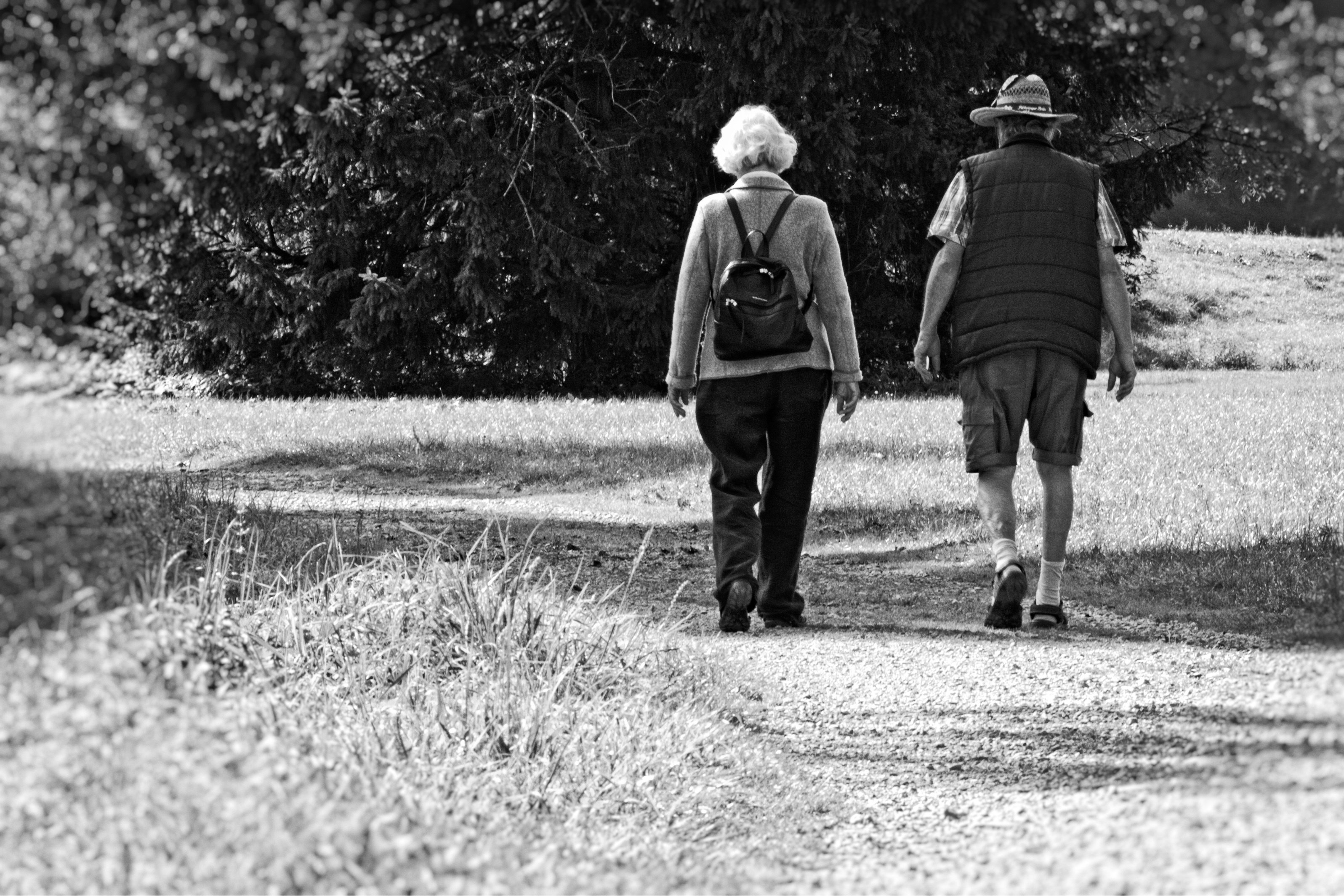
Activity Level: Light
Oxygen Therapy-Friendly: Yes
Walking is a wonderful activity for people with COPD because it is light, steady, and slow-paced, while still getting your heart rate up. It helps strengthen your heart, your skeletal muscles and the muscles you use to breathe.
Walking is a great way to ease into exercise and practice controlling your breathing as you work out. It is relatively easy to time your breathes with your steps as you walk, and you can slow down or take breaks as often as you need to.
If walking sounds boring at first, just think about all of the amazing sights you could see while out on a stroll. You could see new people, new places, and even spot birds and wildlife just about anywhere you go.
You can spice up your walks by leaving your neighborhood for a stroll around a local park, shopping area, waterway or hiking trail. If the weather is too hot, too cold, or you just need a change of pace, you could even take a walk in a large indoor place like a convention center or mall.
Walking is not only a great way to get exercise and improve your physical health, but it's a great opportunity to get outside and reconnect with nature. You can take long walks to get away from the bustle of modern life for awhile, or take short, quick walks during the day to clear your head and get some fresh air.
Wherever you go, walking is bound to improve your physical endurance and may even help you improve your shortness of breath when you do other light activities. It also gives you a reason to get out of the house and spend some time in the sun.
Golfing
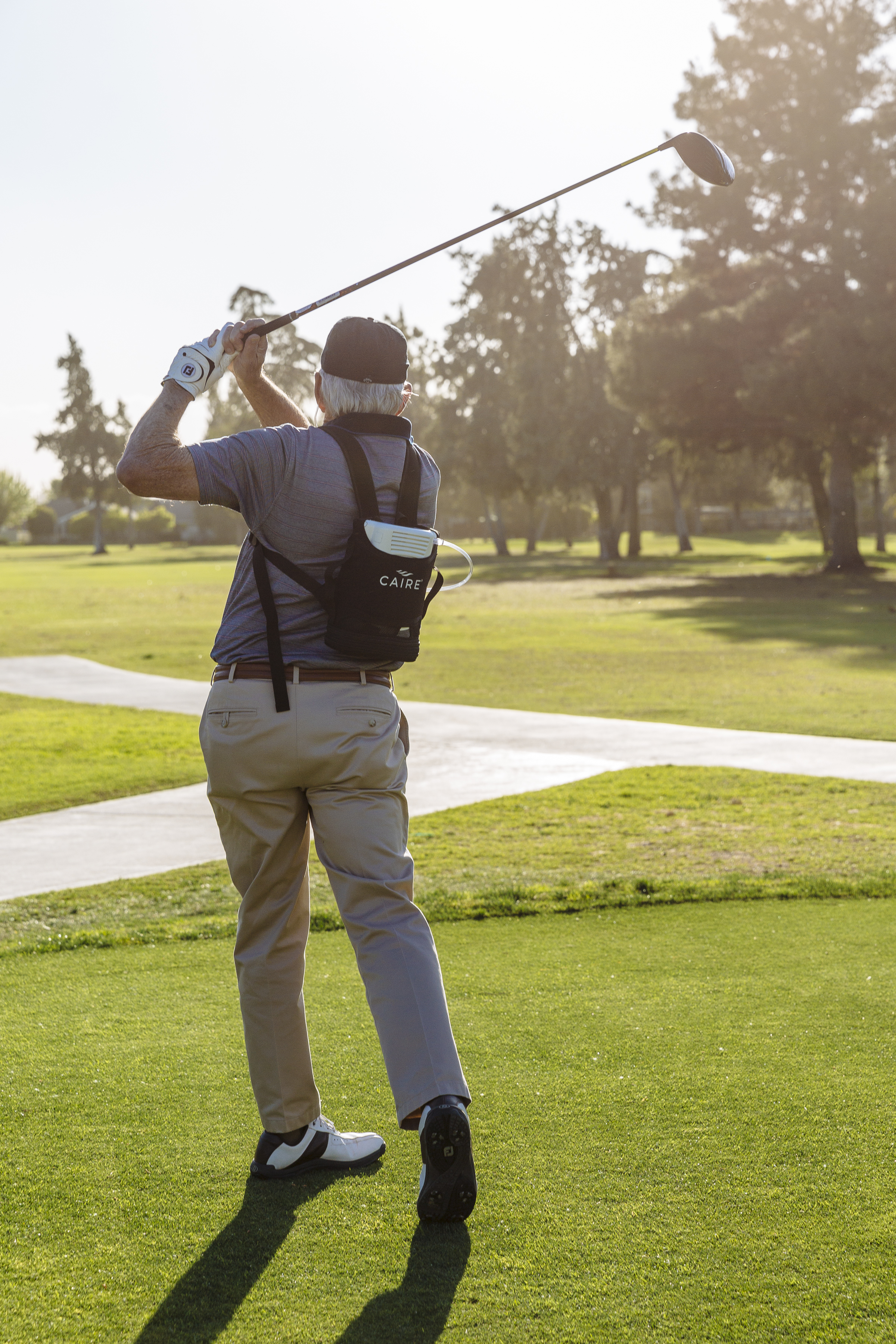
Activity Level: Light
Oxygen Therapy-Friendly: Yes
Golfing is a fantastic sport for relaxing and enjoying the outdoors if you have COPD. It also gives you the opportunity for some light physical activity through walking, swinging, and spending time on your feet.
Golfing is also oxygen therapy-friendly, since it's usually simple to tote your oxygen along with your other supplies. Using a golf cart also means you won't have to wheel your oxygen tank too far, although using a portable oxygen concentrator would be even more convenient.
The main downsides to golfing are that games can be long, the weather can be hot, and it can be pricey to play. If you cannot afford to rent or buy the supplies, or if being in the sun all day worsens your symptoms, you might be better off finding a less expensive or less lengthy outdoor hobby to enjoy.
Gardening
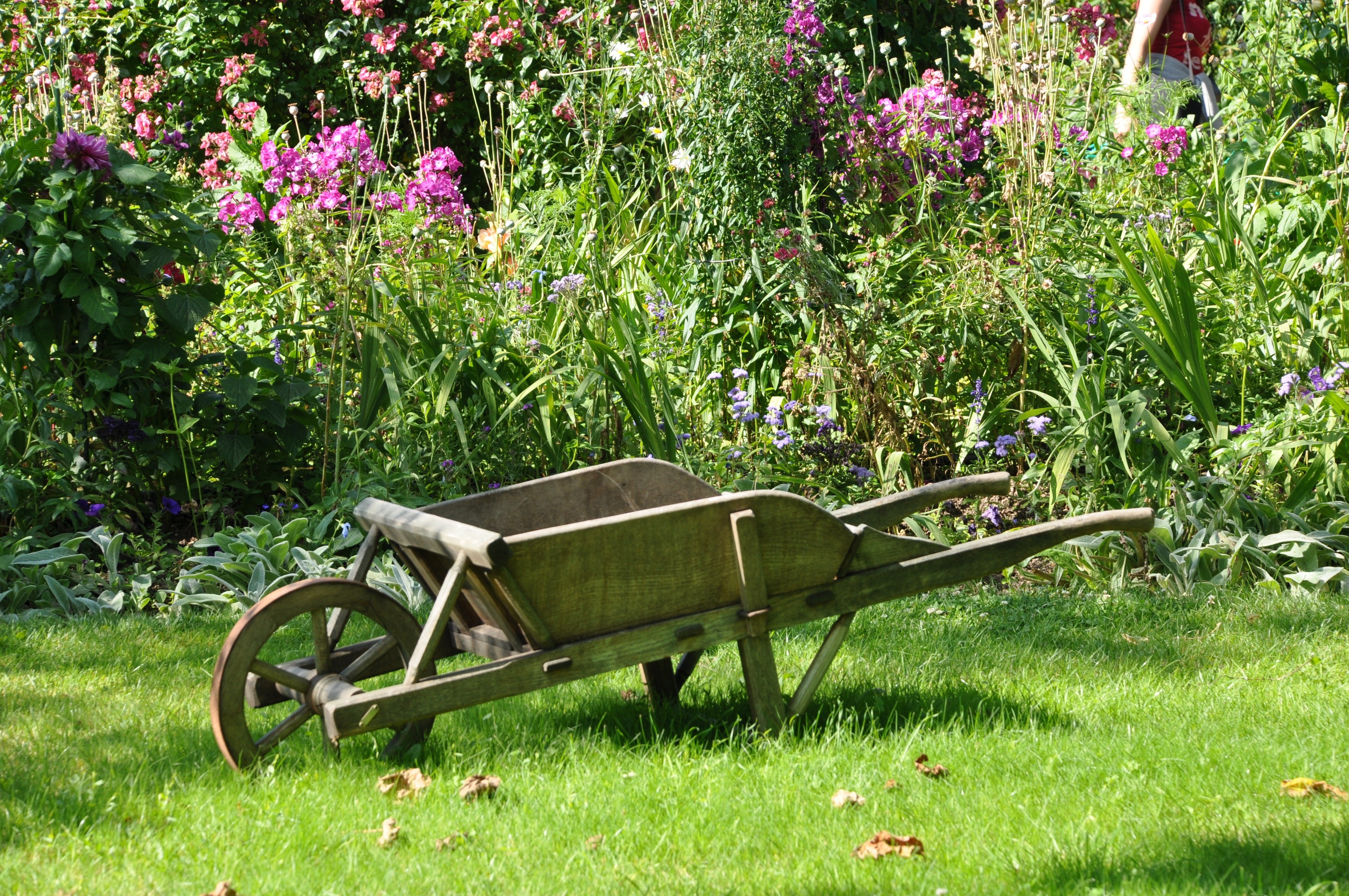
Activity Level: Light
Oxygen Therapy-Friendly: Yes
While gardening isn't for everyone, it's a great way to spend time outside without ever having to go far from home. It's relaxing, fun, tactile, and allows you to enjoy nature in a close and intimate way.
Even if you don't have a green thumb, gardening is a great way to learn more about plants and get some practice keeping them alive. Even though there are always struggles, there is something unique and magical about the experience of growing living plants and bringing seeds to life.
Working in the garden is also a great way to get some extra exercise while getting to play in the dirt. Between planting, weeding, digging, and watering, there are plenty of opportunities for light cardio and strength-building tasks.
If you have trouble kneeling and crouching, you can use garden knee pads or stools to make planting and weeding more comfortable. It is also much easier to garden in raised beds, which are easier to reach and provide a variety of benefits for plants.
One of the best things about gardening is enjoying the fruits of your labor, whether it's fresh veggies and herbs to eat or simply beautifying your home. Bringing beautiful plants and blooms to life is a reward in and of itself, whatever kind of gardening you do.

You don't even need a large yard or space to start your own garden; just a small garden bed, raised bed, or even some large pots will do. There are countless resources online about small space gardening for people with little or no lawn space, such as apartment and urban city dwellers.
There are many different ways to plan a garden, and what you choose will depend on your individual plant preferences and the space you have to work with. You could even cultivate an indoor garden if you have enough sunny window space or don't mind investing in indoor grow lights and other supplies.
Here is a variety of ideas for different types of gardening you could try as a new hobby:
- Plant a classic vegetable and herb garden
- Try square-foot gardening for the best yield in small spaces
- Use a raised bed to allow easier access and a healthier environment for your plants
- Start a window box or container herb garden
- Built a succulent plant collection
- Try container gardening and grow all your plants in indoor or outdoor pots and containers
- Learn the art of raising bonsai trees
- Join a community garden in your local area
- Take a gardening class at your local library or community center
Fishing
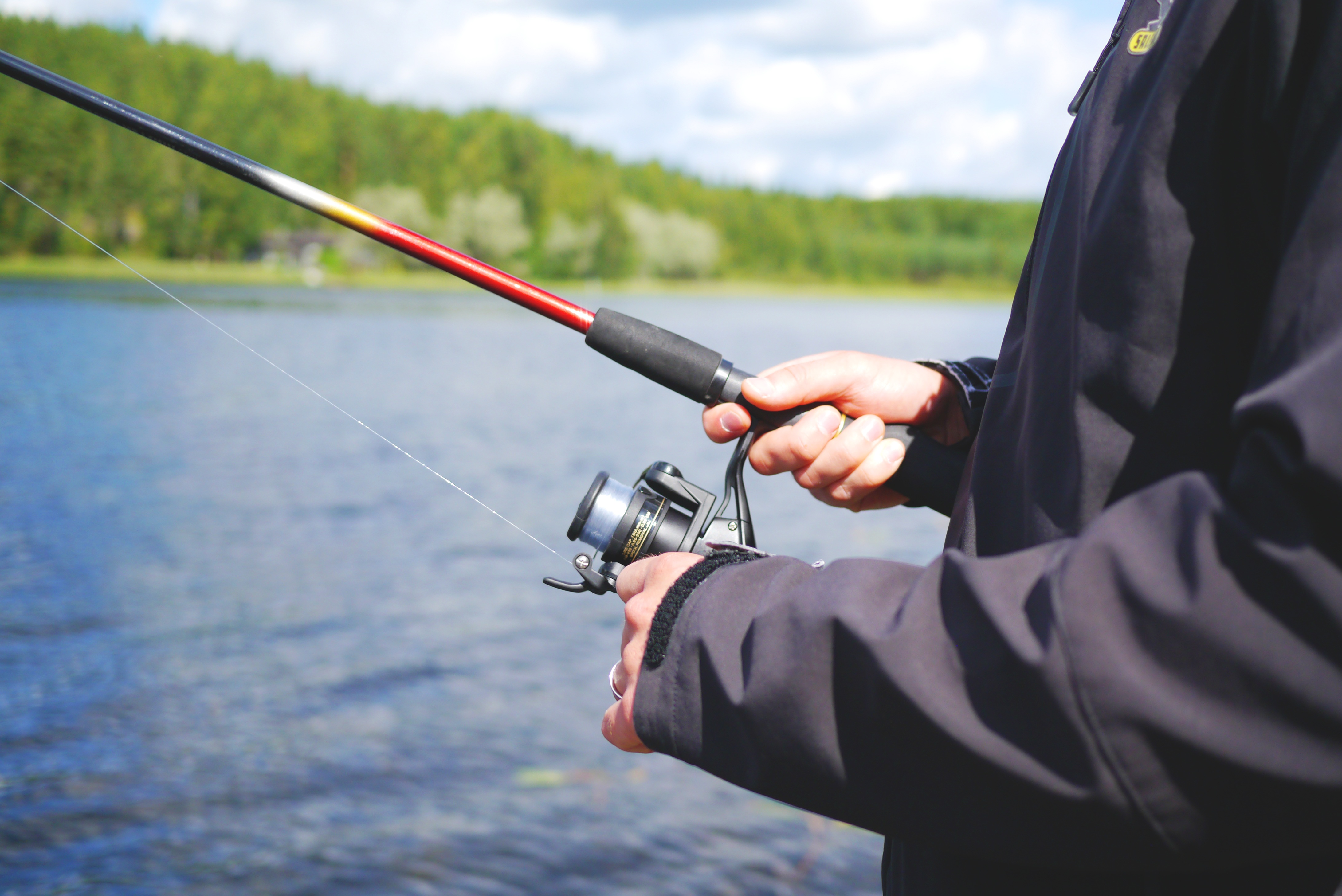
Activity Level: Very Light
Oxygen Therapy-Friendly: Yes
Fishing is a slow-paced, yet delightful activity and a satisfying way to spend extended amounts of time outdoors. It's also a great opportunity to get out of your house and away from all the technology and distractions of modern life.
Unlike outdoor activities that you do in your own neighborhood or backyard, fishing gives you the opportunity to delve a little deeper into nature. It's a great excuse to explore your local parks and waterways or travel to far-away lakes and reservoirs on more distant fishing trips.
Fishing is also great for people with COPD who have severe symptoms or limited strength and mobility. While it usually requires a bit of walking, it is overall an extremely light and easy activity to do.
Fishing is also oxygen-friendly, as long as you have a sufficiently portable oxygen device or go to an easily-accessible stretch of water. You can also reduce the difficulty of hauling bait and supplies by enlisting a friend to help or using a wheeled container to carry your things.
Just make sure you pack light and take plenty of water along with you to avoid dehydration. If you use supplemental oxygen, it's also a good idea to stay on dry land to protect your equipment and ensure you can quickly go and get help if needed.
Fishing is relatively inexpensive once you have the right supplies, although you may need to pay for a permit or pass to fish in some places. With any luck, however, you'll have dinner covered by the fish you catch by the end of the day!
Bird Watching

Activity Level: Light
Oxygen Therapy-Friendly: Yes
Bird watching, or “birding” as it is affectionately called by avid hobbyists, is an incredibly simple, yet fascinating hobby. It's a wildly popular activity; at least 85 million people in the US participate in some sort of bird watching, and all you need is a field guide to get started.
Birding is a great hobby for people with COPD because it is light, relaxing, and totally oxygen-friendly. You can enjoy bird watching while standing, hiking, or sitting completely still, and you can choose your activity level based on your personal goals, symptoms, and how you feel on a particular day.
Birding is also relatively inexpensive; while you may need to spend about $100 on a pair of binoculars to start, it's a one-time purchase that can last you a lifetime (and they're not strictly necessary if you don't have the funds). The rest you can get for free, including bird identification field guides, which you can rent from your local library, and the bird-viewing areas themselves.
